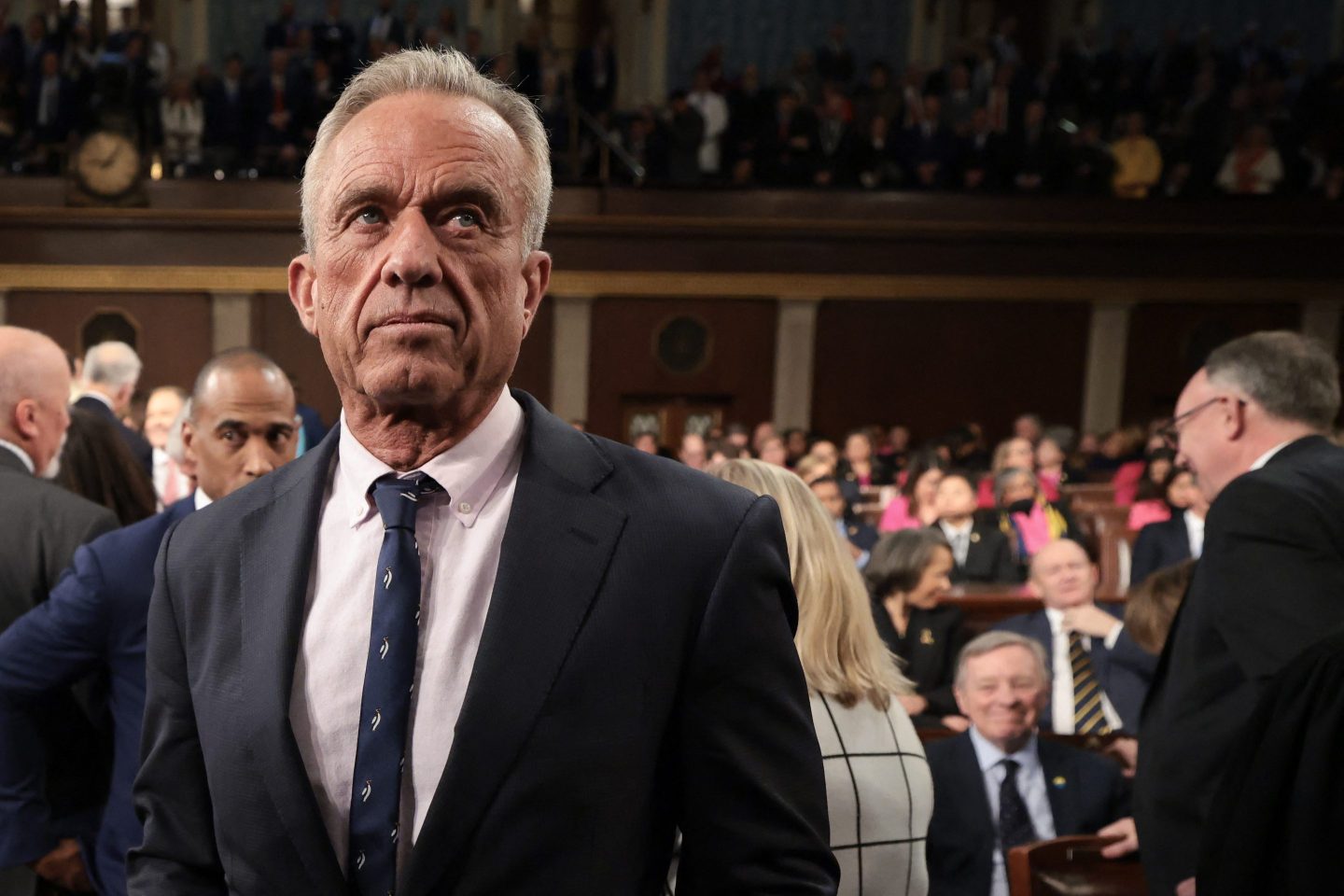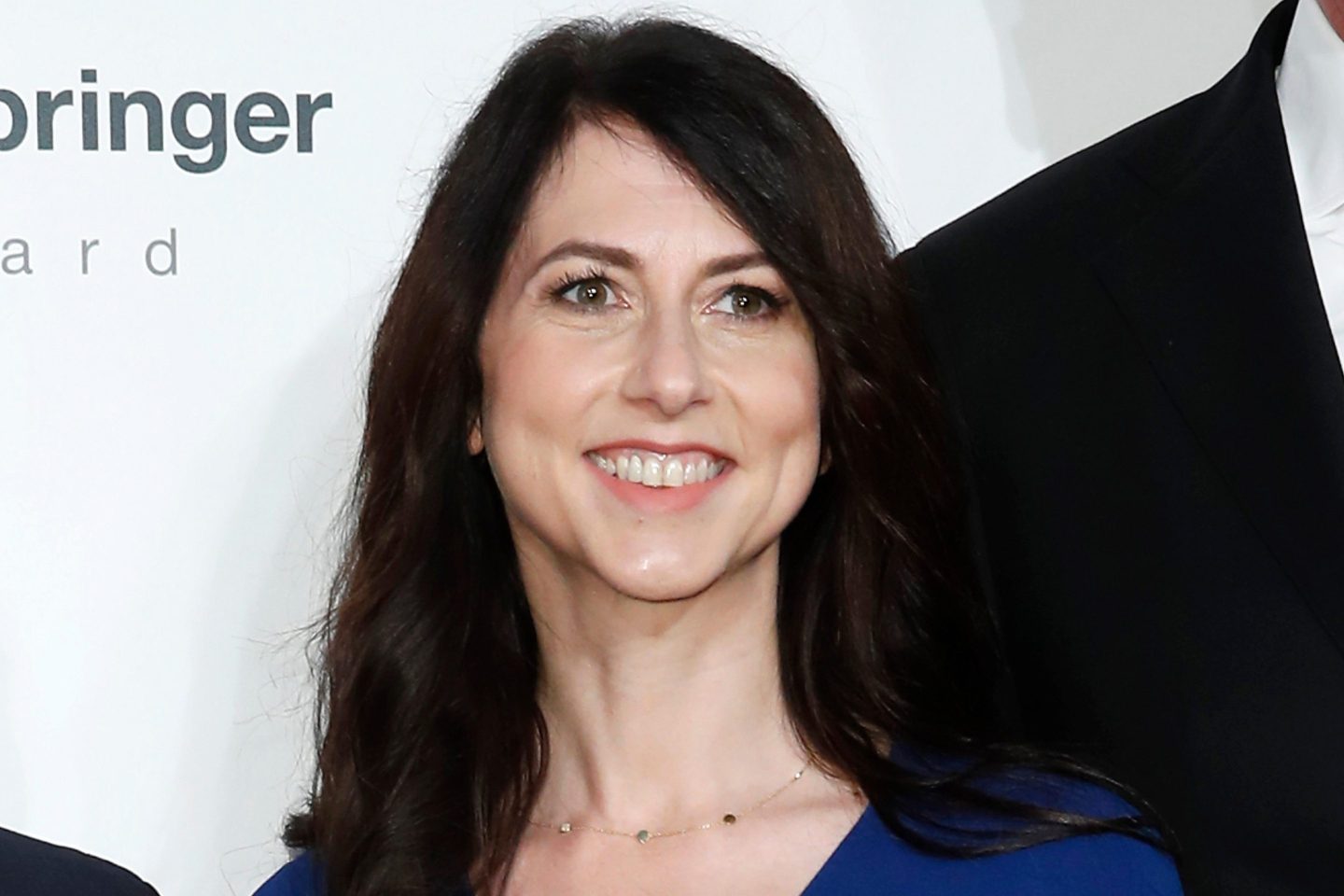Health and Human Services Secretary Robert F. Kennedy Jr. has called on top executives from Kraft Heinz Co., General Mills Inc. and other food companies to remove artificial dyes before the end of his term.
“Kennedy expects ‘real and transformative’ change by ‘getting the worst ingredients out’ of food,” according to an email sent by the Consumer Brands Association to its members, viewed by Bloomberg News, that described the meeting.
US food stocks fell on Tuesday, with many outpacing the decline of the S&P 500 Index amid a broader selloff. General Mills stock slipped as much as 3.9%, while Hershey Co. shares fell as much as 3.3%.
Health advocates have said for years that synthetic colors add no taste or nutritional value but make unhealthy foods more visually appealing. There are also concerns that the dyes may be carcinogenic or trigger hyperactivity in some children.
The health secretary told executives it’s his priority that dyes are removed from food “before he leaves office,” according to the memo, sent by Melissa Hockstad, the chief executive officer of the CBA. He also “made clear his intention to take action unless the industry is willing to be proactive with solutions.”
The CBA, an industry group for packaged goods and food, will talk with HHS staff “about specific expectations they have of the industry and sharing how HHS can help remove roadblocks for the industry to provide solutions.”
Kennedy posted a photo yesterday on X with food industry leaders after the meeting and pledged to “strengthen consumer trust by getting toxins out of our food.”
The directive comes after a campaign against WK Kellogg Co. that heated up over a year ago with a letter from food entrepreneur Jason Karp that requested the removal of artificial dyes from the company’s cereals. Karp, along with health advocate Calley Means, joined a cause championed by longtime food activist Vani Hari, also known as Food Babe. All three supported Kennedy’s “Make America Healthy Again” campaign.
“This is the kind of leadership we need to protect the American public,” Hari said in a statement to Bloomberg. “These food companies have already reformulated their products without dyes in so many countries, now it’s time for them to do the same in America.”
The CBA, which didn’t share the memo to CEOs with Bloomberg, provided a copy of a letter it sent on Tuesday thanking Kennedy for the “constructive conversation.” The industry is “committed to delivering safe, affordable and convenient product choices to consumers,” according to the letter.
US health officials earlier this year moved to ban the artificial food coloring Red No. 3 starting in 2027. The dye has been linked to cancer and has been used in scores of products from candy to cold medicine; other colors haven’t been banned, however. Artificial dyes are used in tens of thousands of supermarket and convenience-store products in the US, according to NielsenIQ data.
Read more from Fortune
Still, as consumers have gravitated toward healthier products, companies have started removing some artificial dyes — Kraft Heinz removed them from its packaged macaroni and cheese in 2016, for example.
But Kennedy’s ultimatum shows companies are being pressured to move faster. Paul Manning, CEO of Sensient Technologies, a massive producer of both synthetic and natural colors, recently told Bloomberg that his company has seen a significant acceleration of companies looking to replace synthetic colors with natural ones.
Related: PepsiCo on Quest to Make Natural Alternative to Flamin’ Hot
Kennedy is indicating that he won’t stop at artificial dyes. In a press release issued on Monday evening, HHS said his agency would explore changing the Generally Recognized as Safe (GRAS) Final Rule. The GRAS rule allows companies to self-affirm the safety of food ingredients and has been another target of food safety advocates for years.











